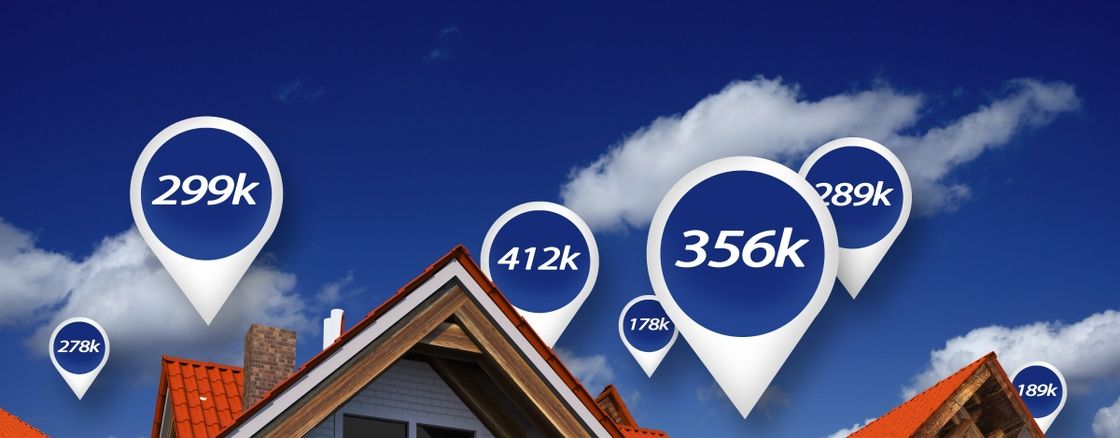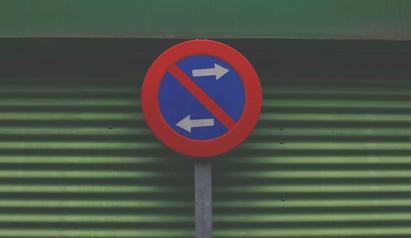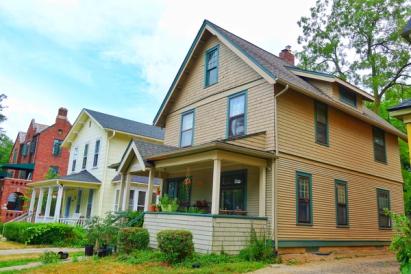How Much Does It Cost to Buy a House?
Written by:
Mike Tassone
Mike is a Co-Founder and Chief Operating Officer of Own Up. He has expertise in all areas of residential lending, having led operations for a top 40 lender in the United States.
See full bio

For the third quarter of 2019, the median sale price of a house nationally was $310,900. How much the house you want will cost depends on where it is located, how big it is, and what amenities it comes with inside and out, to name just a few variables. The price also depends on how well you negotiate, how urgently the seller wants to make a deal, how tight the market is, and whether the seller is using a real estate agent or not. Your mortgage, and therefore the mortgage interest rate you will pay, depends on your credit score. Oh, and that median cost doesn’t include closing costs, homeowner’s insurance or property taxes.
So let’s start again. How much does it cost to buy a house? The answer: It depends on many things, but we will do our best to break down the real cost of homeownership. To make it simple, we will base our math on the median sale price nationally of $310,900 for the third quarter of 2019.
Home Buying
If you are house hunting in a competitive market where demand is high and supply is low, expect to pay a premium for the house you want and be forced to make a decision quickly. The home buying process is a long one, taking about 40 days (more if you do not use a real estate agent). Sellers therefore want to see that buyers are serious. An earnest money deposit, or EMD, is a monetary show of good faith that you will go through with the sale providing all contingencies are met in the Purchase and Sale Agreement. If all the contingencies are met and you pull out, you can lose that deposit.
The amount varies by market. In a slow market, it is as little as 1% or less. The EMD for high end homes in very competitive markets can be as much as 5%. It is usually about 1-2% of the home price. This amount will be held in escrow and is credited to you in the down payment or closing costs.
EMD cost: Between $3000-$6,000 (1-2% of median sale cost)
Down Payment
Your down payment is based on the purchase price of your new house. Your monthly mortgage payments are based on the mortgage interest rate you secure from a lender and the terms of the mortgage (15-year mortgage, 30-year mortgage, adjustable rate mortgage). The best loan terms are for single-family homes where the buyer takes out a 15-year or 30-year mortgage and puts down at least a 20% down payment.
The Federal Housing administration (FHA) offers loans with as little as 3.5% down, lower closing costs and easier credit requirements that are good for first-time buyers. These options are good for first time buyers. Veterans can access loans with no money down. If you don’t put 20% down, you must pay private mortgage insurance (PMI). This can cost hundreds of dollars a month and will be discussed below in monthly payments.
20% Down payment: $62,180
10%Down payment: $31,090
Closing Costs
Closing costs are sometimes a surprise to first-time buyers unfamiliar with the home buying process. Closing costs including a variety of expenses above and beyond the purchase price of your house. These typically include attorney’s fees, a title search, title insurance, an appraisal fee, a mortgage loan origination fee, home inspection fee, and a credit report fee. For 2018, average closing costs were around 2% nationwide.
For some buyers closing costs also include discount points. Discount points are a fee paid by the borrower to the lender at closing in exchange for a lower interest rate over the life of the loan. One point reduces a mortgage by about 0.25 percent and costs about 1% of the purchase price.
Other buyers look to reduce closing costs by using a lender credit to reduce closing costs. In exchange, the lender increases the mortgage interest rate, the opposite of points. This option is best for people who have less savings.
Buyers can sometimes get sellers to pay some closing costs if the market is soft or the sellers are in a rush to close the deal and move.
Finally, closing costs include a variety of prepaid charges that can include property taxes, upfront homeowners’ insurance, homeowners’ association fees (HOA) and a PMI payment.
Typical closing costs: $6,218
Closing costs with 1 point purchased: $9,327
Closing costs with a lender credit equal to 1 point: $3,109
Monthly Payments
Your monthly payments depend on your mortgage and property taxes. Your mortgage interest rate depends on the market and your credit score. A credit score over 700 means you will likely get a favorable rate. The average rate for a 30 year fixed-rate mortgage was 3.68% in early December. Buyers with lower credit scores or those house hunting in a time of higher interest rates can reduce their interest rate by purchasing points (as discussed in closing costs).
Three in four buyers do not shop around for a mortgage rate, but you should. Mortgage rates offered to the same buyers can vary as much as 0.5%, or $20,000 to $30,000 over the life of the loan. Shopping around will insure you are getting a competitive rate.
Monthly payments include mortgage payments, property taxes and homeowner’s insurance. Buyers will have PMI if they put down less than 20%, flood insurance if they live in a flood zone, and Homeowner Association (HOA) fees if they live in a condominium or townhouse development. Lender’s like to see that borrowers spend no more than 28% of gross monthly income on a mortgage and associated monthly housing costs. You can adjust the terms using this calculator to determine your payment.
Monthly mortgage payment (20% down, 3.68%, 30-year fixed): $1,142
Property taxes (varies by state and within a state) equal to 1% of property value: $3,109 ($259 a month)
Homeowner’s insurance: About $1200 a year ($100 a month)
Potential costs:
PMI (if you put less than 20% down): Over $300 a month
HOA fees: About $200 a month
Ongoing Costs
How much it costs to buy a house is an important number, but it is only part of the picture. The costs don’t end when you buy a house. Houses require maintenance, and this adds up to about 1% pf the purchase price each year. Life sometimes throws curveballs, like a leaking roof or if one person loses their job. For this reason, it is good to have an emergency fund equal to three to six months of living expenses. Other expenses include utilities (which typically increase with house size) landscaping, and trash pickup in places that don’t provide it. Make sure you can afford these ongoing costs before buying a house.
The Final Countdown
So how much does it cost to buy a house? The answer is still, it depends, but here are a few scenarios based on a $310,900 house and a base mortgage interest rate of 3.68%. In all cases, add money for HOA fees and flood insurance if applicable.
- 20% down for a single family house: $68,398 for down payment and closing costs, and about $1,500 a month for mortgage payments, insurance and property taxes
- 20% down for a single family house using a discount point to secure the 3.68% rate: Down payment and closing costs increase to $71,507 and about $1,500 a month for mortgage payments, insurance and property taxes
- 10% down for a single family house: $37,308 for down payment and closing costs, and about $1,900 a month for mortgage payments, insurance, property taxes and PMI
- 10% down for a single family house using a discount point to secure the 3.68% rate: $40,417 for down payment and closing costs, and about $1,900 a month for mortgage payments, insurance, property taxes and PMI
- 10% down for a single family home using a $6,218 lender credit (increasing interest rate 0.5 to 4.18%): $31,090 for down payment with no closing costs, and about $2,000 for mortgage payments, insurance, property taxes and PMI
This is a lot of math, but it is not as complicated as it seems, and you don’t have to figure it out alone. Own Up specializes in mortgages, but it guides people through all steps of the homeownership journey. If you are considering buying a townhouse, house or condominium and have questions, give us a call. We’d love to chat.


